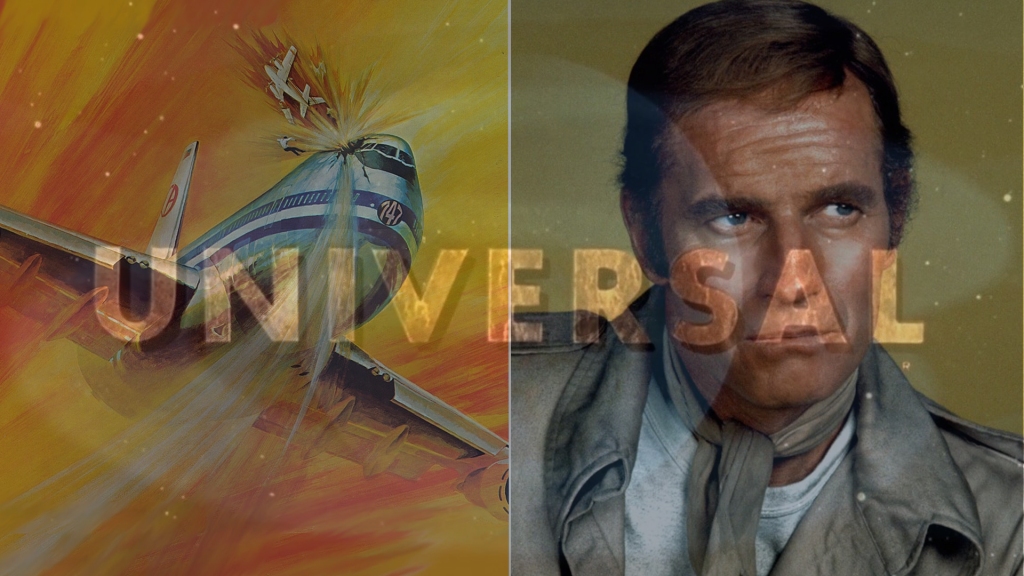
No. It doesn’t. Now you can move on with your life.
Seriously though, apart from the curious case of Matt Damon not being able to refrain from speaking (yet again), the release of Tom McCarthy’s Stillwater (find my review here) was accompanied by quite a controversy. After Vanity Fair published a piece in which McCarthy admitted that the story was loosely inspired by the case of Amanda Knox, who was wrongfully convicted and imprisoned for a murder of a fellow student when she was studying in Italy, the entirety of the discourse surrounding the film – such as it was – coalesced around this affair.
Knox herself took to Twitter and unveiled in a lengthy thread her problems with what she saw as someone using her likeness without her permission. She also gave a handful of interviews and featured in a bunch of articles. For a brief moment she set the world ablaze, so much that she may have effectively galvanized a section of the online film community and turned it against the film and its creators. And it left me scratching my head and wondering if this was a serious matter or an over-reaction.
I suppose the short answer to this conundrum is right up there in the opening paragraph. It’s an over-reaction for a simple reason that even the filmmaker himself outlined in his interview with Vanity Fair. Stillwater is not a dramatization of Knox’s story and nowhere in the film or the marketing campaign does anybody even imply this could be the case. The film does not open with a ‘based on a true story’ card, the trailer makes no mention of it, neither does the poster. A potential viewer could clue into this possibility only if (a) they read the Vanity Fair piece, (b) they remembered the story and connected the dots themselves or (c) they were alerted to the scandal brought to the forefront by Amanda Knox herself. There is literally no other way. In fact, the filmmakers emphasize the words ‘loosely’ and ‘inspired’ when discussing the connection to the film, which extinguishes any budding discussion about integrity and the filmmakers’ responsibility towards the story they are drawing from. What we have here is not failing to consult a source in an attempt to tell their story, but a case of someone simply being a storyteller.
Many stories start with the proverbial ‘what if’ question and it is often precipitated by something the storyteller experienced in real life. A great relatively recent example of this phenomenon reduced to practice is found in Lenny Abrahamson’s Room, a story about a woman and her son imprisoned by a sociopath, whose roots to real-life events are easily traced. In fact, the author of the novel upon which the film is based, Emma Donoghue, admitted to being inspired to write this story after reading about the infamous case of Josef Fritzl who kept his own daughter imprisoned in a cellar for over twenty years. What she did was ask a question what it could be like to be in the shoes of someone who’s put in this situation – cut off from the outside world, constantly abused and dehumanized.
McCarthy followed a similar process, which – I repeat – he outlines in the interview. He was intrigued by the story and wondered what it must be like to find yourself in such a dire situation: abroad, far away from your loved ones and accused of a crime you didn’t commit. That’s literally all he took. He asked a ‘what if’ question and built a story around it; a story he was interested in exploring much more than simply recounting the events of Knox’s case. I can only suppose that a good chunk of why Knox was so enraged stemmed from the fact that most details were changed to service the narrative, some of which she feared could raise doubts as to her own innocence. But, here I am repeating myself again: Stillwater isn’t attempting to recount her story. If it was, then we’d be having a different conversation; though I can only expect someone in the legal department at the studio would have then objected to the script being produced to avoid a massive lawsuit. But it’s not. In fact, the story is essentially archetypal at this point and a single google search will show you why. Unfortunately, many overseas students find themselves trapped in the gears of criminal justice while staying in foreign countries, unjustly or not, and McCarthy’s film successfully detaches itself from much of discernible detail connecting the narrative to a real-life case. In all honesty, I had no idea of this controversy before watching the film (and I had prior knowledge of the case) and it didn’t even occur to me to connect the dots, let alone to develop any kind of doubts as to Knox’s innocence. It’s immaterial because the film isn’t even about the case in the first place. It surely starts that way but the storyteller’s interests lie in exploring the what-ifs of what would go on in the head of the father of said imprisoned student.
In truth, I don’t believe audiences would care about reigniting whatever discussion surrounding the real-life case that may have inspired a small chunk of the film’s narrative. It would be at best a curious piece of trivia and a talking point in a discussion about the process of building a story, finding inspiration and turning a little ‘what if’ spark into a fully fleshed-out narrative with arms, legs, three acts and an epilogue. That’d be it. At the risk of coming across provocative (and I assure you, I don’t mean to be provocative), had Amanda Knox not come out with her comments, I don’t think anybody would have noticed, let alone had their opinions influenced by this movie. And even so, it’s a storm in a teacup. Much ado about nothing. Art imitates life. Always has, always will. However, it gives the recreationally outraged keyboard warriors a cause to get behind and – if left unchecked – might have real-life ramifications in the form of some people being de-platformed or their reputations tarnished for no good reason.
If anything, this scandal and the aftermath of people coming together under the banner of enforcing some form of storyteller responsibility as to how they use their imagination to grow inspirations taken from real life into completely fictitious narratives illustrates a worrying shift in our culture. It seems anyone who wants to tell a story and even dreams of drawing inspiration from real life should seek approval of whoever inspired them, or better yet refrain from telling a story from a viewpoint that is not their own. This is yet another facet of a growing problem in the literature world where young authors have become mortally afraid of imagining characters that are from different backgrounds to their own because they don’t want to be cancelled, despite the fact this has not been a problem for anyone up until very recently. It was just storytelling. I suppose, we no longer live in the 19th century and it has become markedly easier to research your story, get in touch with people who would enhance your worldview and perspective on the matters you’d like to raise in your own work, but nobody should be openly discouraged from drawing inspiration from real life or writing from the point of view of other people. Storytellers are not documentarians. They should do their due diligence to maintain authenticity throughout their work, but they are nonetheless in charge of where these stories can and should go.
I can only imagine this is an unforeseen by-product of the cultural shift perpetrated by the nascent of the Internet. Now, everyone is a storyteller. Everyone can have a blog where they are in control of their narrative. You are telling you life story right now by sharing photos on Instagram and Facebook or relaying your thoughts in Twitter threads. Storytelling has been both commodified and personalized to a point where some people find it alienating or even inappropriate when someone attempts to tell a story the old-fashioned way; which I believe is the case in here. Tom McCarthy had every right to get inspired by a real-life case that enveloped the news cycle for a good amount of time, just as Emma Donoghue had every right to be inspired by the Fritzl case. Stillwater is just a story. A great story. But just a story.
You can stand down now.




Leave a comment